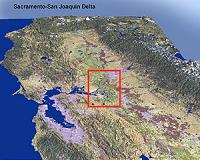| . |  |
. |
Paris, France (SPX) May 24, 2010 Ten years ago, ocean acidification was a phenomenon only known to small group of ocean scientists. It's now recognised as the hidden partner of climate change, prompting calls for an urgent, substantial reduction in carbon emissions to reduce future impacts. The 'Impacts of Ocean Acidification' science policy briefing presented by the European Science Foundation on 20 May for European Maritime Day 2010 gives a comprehensive view of current research. Prepared by leading scientists from Europe and the USA, it highlights the need for a concerted, integrated effort internationally to research and monitor the effects of ocean acidification on marine environments and human communities. The seas and oceans, which absorb almost a third of the greenhouse gas emissions in the atmosphere, are rapidly becoming more acidic due to increases in carbon dioxide in the atmosphere from burning fossil fuels. Carbon dioxide produces carbonic acid when it dissolves in seawater and up to now, the oceans have buffered the effects of global warming by absorbing almost a third of the carbon dioxide emitted from human fossil fuel use. Today the oceans are more acidic than they have ever been for at least 20 million years. This chemical change could cause significant consequences to marine ecosystems and the goods and services that they provide. For example, coastal zones such as in the Mediterranean and North Seas are rich in calcifying organisms such as shell fish that may be particularly sensitive to large changes in carbon chemistry. Molluscs make their shells by extracting dissolved calcium carbonate from seawater and using it to form two minerals, calcite and aragonite. Corals use the same process to make their external skeletons. As water becomes more acidic, the concentration of calcium carbonate falls so that eventually there is so little that shells or skeletons cannot form. "Ocean acidification is already occurring and will get worse. And it's happening on top of global warming, so we are in double trouble. The combination of the two may be the most critical environmental and economic challenge of the century," said Professor Jelle Bijma, lead author of the report and a biogeochemist at the Alfred Wegener Institute in Germany. "Under a business-as-usual scenario, predictions for the end of the century are that the surface oceans will become 150 per cent more acidic - and this is a hell of a lot." Integrated research on the impacts of ocean acidification is still a very new field - the full implications of these changes are unclear for marine ecosystems and fisheries resources, including fish stocks, shellfish and coral reefs. Economic research on systems for managing marine resources is essential to understand the impacts on fisheries and the human communities that rely on them. Current European and national programmes are relatively small compared to the combined challenges posed by ocean acidification and global warming. Existing research has mainly been initiated by individual researchers or teams, with limited overall coordination. Two years ago the European Project on Ocean Acidification was funded by the EU and within the last year Germany and the UK have funded national ocean acidification programmes - BIOACID and the UK Ocean Acidification Research Programme respectively. As others emerge they need to be brought together through a large-scale research initiative taking full advantage of the combined scientific expertise across the European countries and internationally. One of the first steps toward integration is to develop a specific database building on the national research activities in ocean acidification.
Share This Article With Planet Earth
Related Links European Science Foundation Water News - Science, Technology and Politics
 Decline Of Endangered California Delta Smelt To Nutrient Pollution
Decline Of Endangered California Delta Smelt To Nutrient PollutionCambridge MD (SPX) May 24, 2010 A new study to be published in the academic journal Reviews in Fisheries Science recommends that efforts to restore the endangered California delta smelt and other declining pelagic fish should more sharply focus on reducing nutrient pollution to the species' native waters. The research indicates these fish populations would greatly benefit from reductions in the amount of nitrogen flowing ... read more |
|
| The content herein, unless otherwise known to be public domain, are Copyright 1995-2010 - SpaceDaily. AFP and UPI Wire Stories are copyright Agence France-Presse and United Press International. ESA Portal Reports are copyright European Space Agency. All NASA sourced material is public domain. Additional copyrights may apply in whole or part to other bona fide parties. Advertising does not imply endorsement,agreement or approval of any opinions, statements or information provided by SpaceDaily on any Web page published or hosted by SpaceDaily. Privacy Statement |